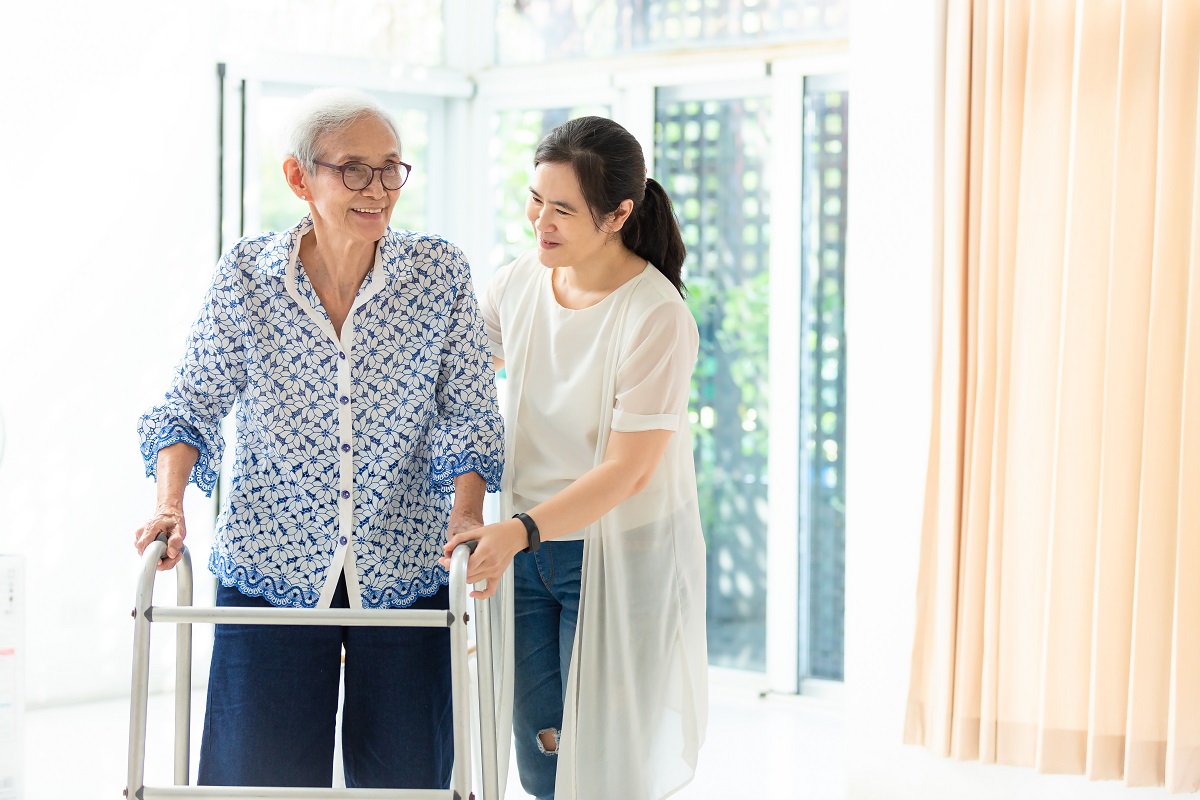Is your loved one with dementia safe at home? 8 questions to ask yourself
You probably dread the thought of the person you’re caring for having an accident at home. Find out how to reduce the risks and keep everyone safe
Could this be you?
The person you’re caring for is determined to remain independent for as long as possible, but although they seem to be coping quite well around the home, you can’t help thinking that they might hurt or injure themselves.
Try not to worry. It’s true that older people are more vulnerable to accidents at home, particularly if they’re frail and becoming increasingly confused, however there are steps you can take to protect them.
8 questions to ask yourself
Are they losing…
• Strength – are previously simple tasks, such as carrying a tea pot or lifting a mug proving too strenuous? Are they often spilling drinks?
• Balance – do they seem unsteady when they get up from a bed or chair?
• Coordination – is it a struggle to use a tin opener, tie shoes or make a sandwich?
• Confidence – are they becoming tense and anxious about walking downstairs, turning on a cooker or boiling a kettle?
Are they using…
• A kettle they’ve had for years?
• Crockery or household items that are too heavy?
• Matches, lighters or candles?
• The wrong equipment for the task? For example, using a sharp knife to spread butter, or pouring hot water into a wine glass ?
If you’ve answered ‘yes’ to some of these questions, you might find the tips below useful.
11 ways to prevent accidents at home
• Most accidents in the home happen on stairs or in the kitchen so make sure each of these areas are as dementia-friendly as possible.
• Generally speaking, loose-fitting carpets, low-lighting and clutter should be avoided whenever possible since they can increase the possibility of a person with dementia tripping, slipping or having a nasty fall.
• Badly fitted footwear, particularly worn out slippers, can also make trips and falls more likely, so replace any that have seen better days.
• Keep everyday items in easy reach so they aren’t tempted to climb or stretch too far for a plate or mug.
• Consider swapping heavier, breakable crockery for lighter dementia friendly versions, and replace an old, heavy kettle with a long lead with a cordless, lighter version.
• Make sure medication, household cleaners, matches and candles are kept under lock and key.
• Be realistic – accidents might still happen but try to stay calm and keep it in perspective. Broken crockery can be replaced, spills can be wiped up.
• Make sure they have easy access to a dust-pan and brush (a long-handled pan and broom may be better if they struggle to kneel or bend) so that broken items can be easily cleared away.
• Keep a small fire extinguisher or fire blanket in an obvious place in the kitchen and make sure there is a smoke alarm and carbon monoxide detector (with regularly changed batteries) in the kitchen.
• Have a well-stocked first aid kit ready and waiting in case anything should happen. It should include plasters, antiseptic cream, bandages, sterile dressings and distilled water.
• Encourage independence. Your instinct may be to wrap them in cotton wool, but once you’ve taken a few sensible precautions it’s probably wiser to let a person with dementia continue doing simple tasks for themselves. Retaining a sense of independence won’t only boost their confidence, it could bring enjoyment and give meaning and purpose to life.
• Your local fire service offers a free home safety checks – it’s worth getting in touch with them
Did you know? Facts about fires
Radiators, electric fires, cookers, and kettles can cause everything from minor scalds to serious injuries for elderly people. In fact, they’re nearly five times more likely to suffer a fatal injury from a burn or scald than someone who is younger often because they’re already frail or in poor health.
SHARE
Explore more




